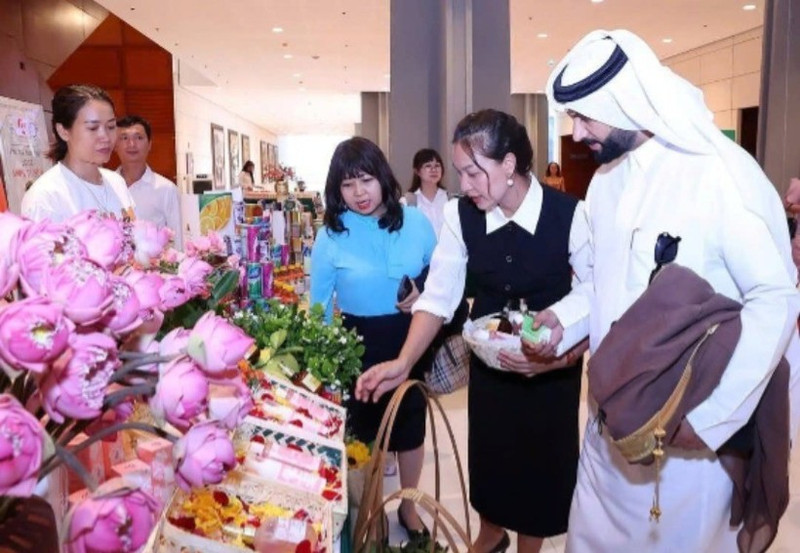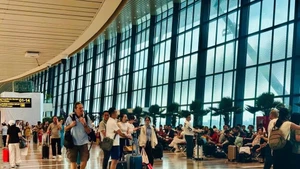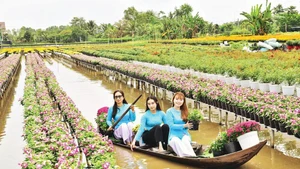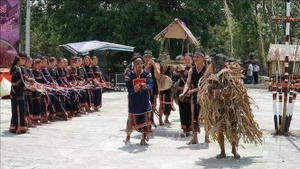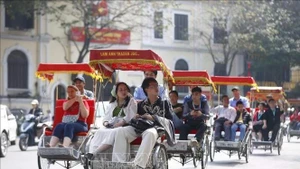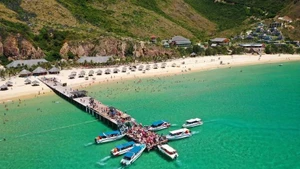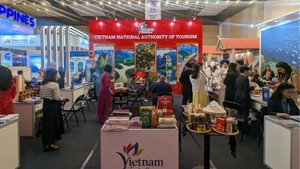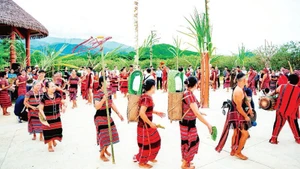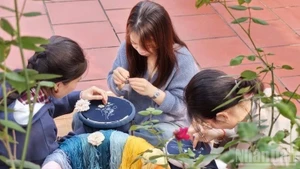Opportunities in a billion-dollar market
Until just a few years ago, welcoming Muslim tourists was still a novel concept in Viet Nam. Ha Noi mainly focused on traditional markets such as Europe, Northeast Asia, North America, and Australia. But over the past two or three years, particularly after the COVID-19 pandemic, the number of Muslim visitors has steadily increased.
As a result, the concept of Halal tourism has become more familiar. The presence of Muslim travellers has prompted the emergence of hotels and restaurants tailored to their needs. Many four- and five-star hotels in Ha Noi now offer Halal-certified dining options.
According to Tran Trung Hieu, Deputy Director of the Ha Noi Department of Tourism, “The number of Muslim tourists visiting Ha Noi is on the rise, with notable markets including India, Malaysia, Indonesia, Bangladesh, Turkey, Saudi Arabia, the United Arab Emirates (UAE), Brunei, and Qatar. In 2024, Muslim visitors made up 15% of Ha Noi’s total international arrivals, with those from India accounting for 50% of the Halal segment. Indonesia and Turkey are also showing strong growth.”
Although still relatively new, the Halal tourism market is rich with potential. With a youthful demographic and high spending capacity in many regions, it is expected to reach a global value of 300 billion USD by 2028.
Yet, the novelty of this market poses significant challenges, chief among them being cultural differences. Muslim tourists require Halal-certified food, accommodation with prayer spaces (especially for group prayers, as Muslims pray five times a day), and private, modest environments, especially for female guests.
Mieu Abbas, President of the Halal Certification Organisation in Viet Nam, noted: “The key is cultural understanding. Guests must feel their customs are respected. However, many tourism businesses still lack Halal knowledge, qualified personnel, and access to international markets. As one of the country’s major tourism hubs, Ha Noi must take the lead in establishing a comprehensive Halal ecosystem.”
Currently, Ha Noi struggles to fully cater to the needs of Muslim tourists due to limited awareness and infrastructure. According to tourism expert Nguyen Minh Truyen, only around 40% of Halal tourism manpower needs are currently met in the capital. Halal-compliant food is another hurdle.
Meanwhile, countries across Asia, including non-Muslim nations such as Japan and Thailand, have already taken swift action to capture this emerging market.
Support needed for business transition
Cultural awareness remains the cornerstone of attracting and retaining Muslim visitors. Nguyen Khac Hoang Son, Director of a Halal certification organisation, explained, “Muslim tourists often seek meaningful cultural experiences and value safety, especially for women. To develop this market sustainably, Ha Noi should create a city-level Halal tourism development plan and integrate it into its broader tourism strategy.”
Specialised agencies should guide hotels, restaurants, and tourist attractions in adapting spaces to include prayer rooms, Halal kitchens, and segregated dining areas if needed. Tailored offerings such as Halal city tours, cultural-eco retreats, or handicraft village visits should be developed. Guidance materials for serving Muslim guests should also be produced.
On the workforce front, long-term investment in structured training is vital—focusing on service skills, cultural understanding, and foreign languages spoken in Muslim-majority countries. In the short term, Ha Noi’s tourism authorities should help upskill accommodation providers, guides, and drivers in serving Muslim tourists.
A common concern among tourism operators is whether catering to Halal travellers requires costly investment in separate facilities.
Vo Ngoc Han, CEO of Phan Gia Xanh Garden (a Halal-certified eco-farm in Khanh Hoa), offered reassurance: “Muslim guests enjoy close-to-nature experiences. Many Ha Noi-based eco-farms can adapt existing functions to meet Halal needs without significant costs. Once you understand Halal requirements, the process becomes straightforward. Fresh fish caught from a pond or vegetables picked straight from a garden are naturally Halal. For privacy, simply arrange a separate space for meals.”
To better serve Halal tourists, more strategic planning and stronger government support are needed. Some experts suggest aligning Halal food and consumer products with Viet Nam’s existing strengths in organic and OCOP (One Commune One Product) goods, which often meet Halal criteria.
Viet Nam already has a Halal certification organisation recognised by 57 Muslim-majority countries, simplifying the certification process. Still, as Mieu Abbas emphasised, “The most important factor is trust. Only by building trust and mutual respect can we ensure long-term success in this promising market.”
